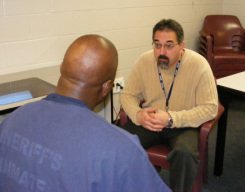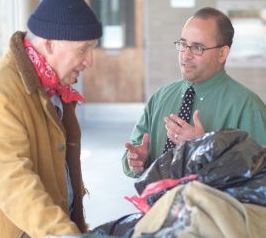Professional Distance in Addiction Counseling
Sooner or later, every counselor will face the fact that he or she is not able to help everyone who becomes involved with their program. Recovery programs can have a very high turnover rate among their residents. Among rescue mission workers, some have reacted to this situation by becoming discouraged, “burned out,” or even skeptical about the chances of any homeless addict “making it.”

Why Professional Distance is Needed
Often, when people first hear the term “professional distance”, they think it means are to be cold, unloving and uninvolved with those we counsel. Actually, it is just the opposite! Over involvement on an emotional level causes counselors to lose their objectivity. They cannot exercise proper judgment in their dealings with those with whom they are seeking to help. Instead, counselors can practice favoritism toward some residents and even end up feeling rejected by them when they don’t respond favorably to their attempts to help them.Mostly, a lack of professional distance is manifested when workers have an improper sense of responsibility for the actions and decisions of their clients. And, it is important to remember that, since so many of those we work with at rescue missions have a background of addiction and codependency, they know how to make others feel guilty about not “taking care of them.”Mission workers must be committed to being part of the solution and not a part of the problem. Their own unresolved issues will inevitably hinder their ability to minister effectively to others.
Professional Distance in Addiction Counseling Read More »








 For Christian programs that work to help addicts, the primary goal is to help them to become integrated into two vital communities — the Church and the recovery community. If our goal is truly to work ourselves out of a job, then we must make sure we are spending enough time and energy preparing our clients for life after our programs. If we don’t, we have done them a great disservice. No matter how success we are with newly sober clients, they will still leave or programs as struggling baby Christians. We must be sure that these new believers knows where to find help when they experiences struggles, even 2, 5, 10 years and more in the future, no matter where they live.
For Christian programs that work to help addicts, the primary goal is to help them to become integrated into two vital communities — the Church and the recovery community. If our goal is truly to work ourselves out of a job, then we must make sure we are spending enough time and energy preparing our clients for life after our programs. If we don’t, we have done them a great disservice. No matter how success we are with newly sober clients, they will still leave or programs as struggling baby Christians. We must be sure that these new believers knows where to find help when they experiences struggles, even 2, 5, 10 years and more in the future, no matter where they live.